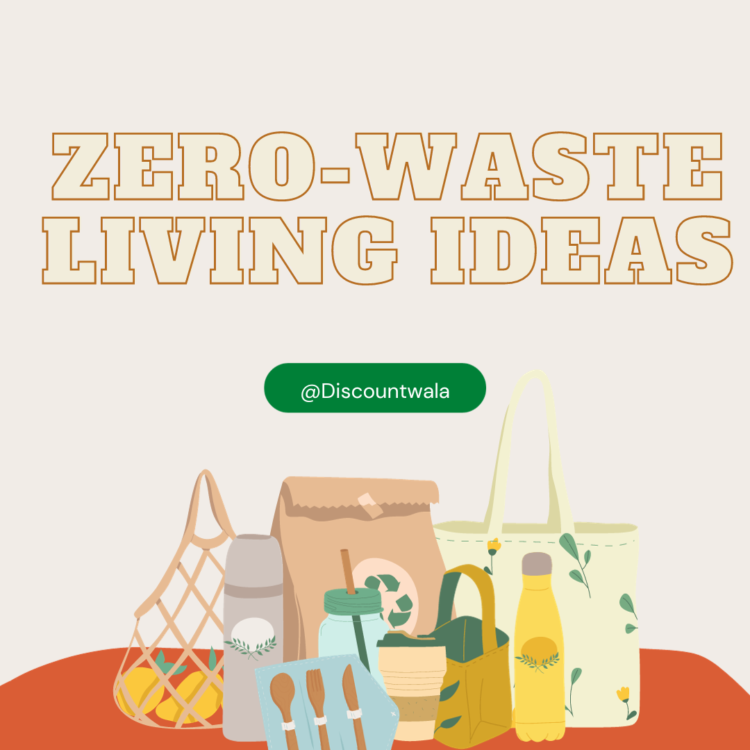In a world where environmental concerns are more prevalent than ever, the concept of zero-waste living has gained significant traction. Zero-waste living is a lifestyle that aims to minimize the generation of waste, reducing our ecological footprint and promoting sustainability. While achieving a completely zero-waste lifestyle may seem daunting, incorporating small, conscious changes into our daily routines can make a significant impact over time. In this blog, we will explore practical and achievable zero-waste living ideas that anyone can embrace.
Refuse and Reduce
The first step towards zero-waste living is adopting a mindset of refusal. Refuse single-use plastics, unnecessary packaging, and disposable items. Opt for products with minimal or no packaging, and bring your reusable bags, water bottles, and containers when shopping. By actively refusing items that contribute to waste, you are taking a proactive step in reducing your environmental impact.
Composting
Food waste is a major contributor to landfills, emitting harmful greenhouse gases as it decomposes. Composting is a simple and effective way to divert kitchen scraps from the trash bin. Set up a compost bin in your backyard or explore local composting programs. Composting not only reduces waste but also enriches the soil, creating a sustainable solution for organic matter.
Reusable Containers and Utensils
Ditch the disposable lifestyle by investing in reusable containers and utensils. Carry a reusable coffee cup, lunchbox, and cutlery to minimize the need for single-use items when you’re on the go. Many businesses now offer discounts to customers who bring their own containers, encouraging the shift towards a more sustainable way of living.
Cloth Instead of Paper
Swap out disposable paper products for reusable cloth alternatives. Consider using cloth napkins, towels, and handkerchiefs instead of their disposable counterparts. This not only reduces waste but also saves money in the long run.
DIY Cleaning Products
Commercial cleaning products often come in plastic packaging and may contain harmful chemicals. Embrace zero-waste living by making your own cleaning products using simple ingredients like vinegar, baking soda, and essential oils. Not only are these alternatives eco-friendly, but they are also gentler on your wallet.
Buy in Bulk
Shopping in bulk is an effective way to reduce packaging waste. Bring your own reusable containers and bags to refill items like grains, nuts, and spices. Many grocery stores now have bulk sections where you can buy just the quantity you need, minimizing both packaging and food waste.
Mindful Fashion Choices
Fast fashion contributes to enormous amounts of textile waste. Embrace zero-waste living in your wardrobe by choosing quality, timeless pieces and supporting sustainable fashion brands. Consider thrifting or hosting clothing swaps to give pre-loved items a new life.
Educate and Advocate
Spread awareness about zero-waste living within your community. Share your experiences, tips, and challenges on social media platforms. Engage in conversations with friends and family, encouraging them to adopt sustainable practices. The more people are informed, the greater the collective impact on the environment.
Conclusion
Zero-waste living is not about perfection but rather a journey of continuous improvement. By incorporating these simple and achievable ideas into our daily lives, we can collectively make a significant positive impact on the environment. Every small step towards reducing waste contributes to a healthier planet for current and future generations. Embrace the challenge, inspire others, and be a catalyst for positive change in the world of zero-waste living.










No Comments
Leave Comment